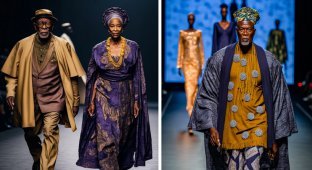A man must be tested by his bride's aunt in a special hut before the wedding (8 photos)
Have you ever heard of the mysterious African tribe of Banyankole? These nomadic herders from the western regions of Uganda are known not only for their history, but also for their very unusual wedding rituals, which are several centuries old. One of the most amazing traditions is associated with the role of the bride's aunt on the wedding day. 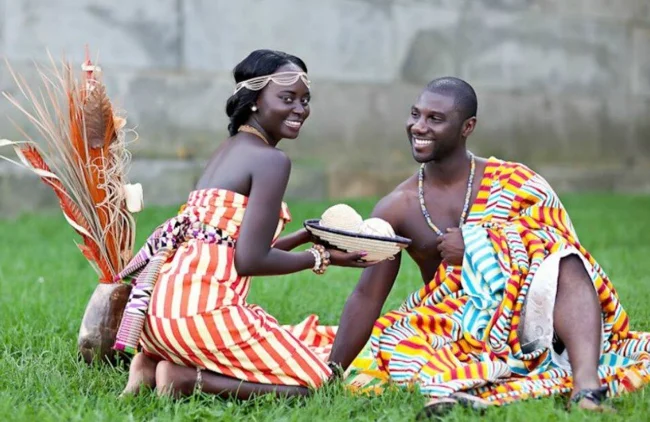
At first glance, this tradition sounds like a plot of an ancient myth, but it is a reality that has existed for centuries and still causes a lot of controversy.
Imagine: the groom is obliged to spend the night not with the bride, but with her aunt. Yes, yes, it is the aunt who must be the first to "try" the future groom.
But why is this done?
Where did this strange tradition come from and how does it look in practice?
Let's figure it out.
A little history about the origin of the tribe 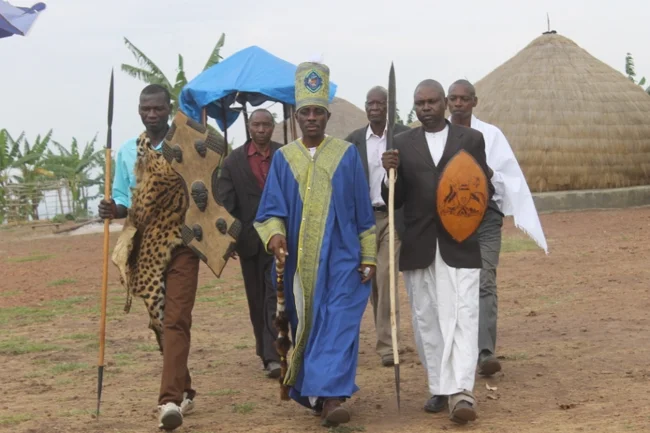
Around the 1400s, the state of Ankole was formed on the territory of modern Uganda. It was inhabited by the Banyankole (or Nkole), a tribe whose culture and social structure were unique to the East African region.
Ankole society was rigidly divided into two caste-like groups:
The Bairu were farmers who grew sorghum, millet, bananas and other food crops;
The Bahima were nomadic pastoralists who bred the famous Ankole-Watusi, cattle with huge curved horns that were considered a symbol of wealth and power. 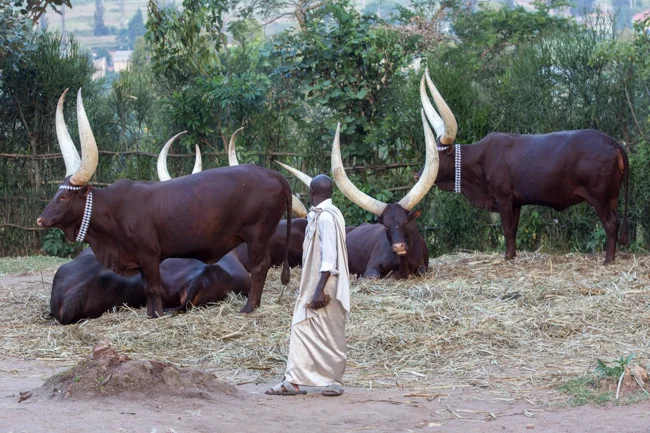
Despite the social stratification, these groups depended on each other and rarely came into conflict: the Bairu supplied the Bahima with grain and vegetables, and in return they received meat, milk and other livestock products. The ruler of the society was a single chief (omugawe), who united both groups and ensured balance between them.
Ankole had a fairly developed political system: there was a council of elders, established traditions of succession to power and its own military organization. Ankole troops fought in local conflicts with neighboring peoples, mainly to protect pastures and trade routes.
With the arrival of Europeans, everything changed: in 1890, the region came under the influence of the British Empire, and by 1901, Ankole officially became part of the British Protectorate of Uganda. However, the unique social structures and cultural traditions of the Banyankole partially survived even after the loss of statehood.
Today, about 400,000 Banyankole people live in southwestern Uganda. They are known not only for their rich history and outstanding cattle breed, but also for their marriage customs, which still amaze anthropologists and researchers of African cultures.
Preparation for Marriage: The Key Role of the Aunt 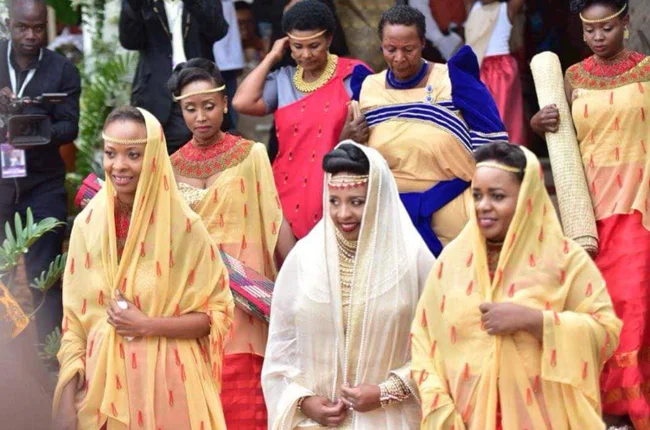
Marriage among the Banyankole tribe has always been considered an important stage in a girl's life.
In each family, at the age of eight or nine, the niece was given under the guardianship of her maternal aunt. It was she who taught the girl future marital responsibilities, the rules of housekeeping, and especially the art of relationships with her future husband. By the time of the wedding, such preparation was supposed to make the girl an ideal wife.
The aunt's girls were also carefully fed, with plenty of milk and beef, since plumpness was considered a sign of health and fertility.
In the Banyankole tribe, it was believed that the father was obliged to marry his sons first. This was even more important than marrying off the eldest daughters.
When a bride was selected for a son, the father had to pay a ransom for her. Most often, the ransom consisted of 14 goats, but sometimes cows or other valuable livestock could be added as a ransom.
After the ransom was given to the bride's family, they had to give the groom and his family their gifts in return. Moreover, these gifts sometimes turned out to be even more valuable than what the groom gave.
The wedding itself was held in 2 stages: 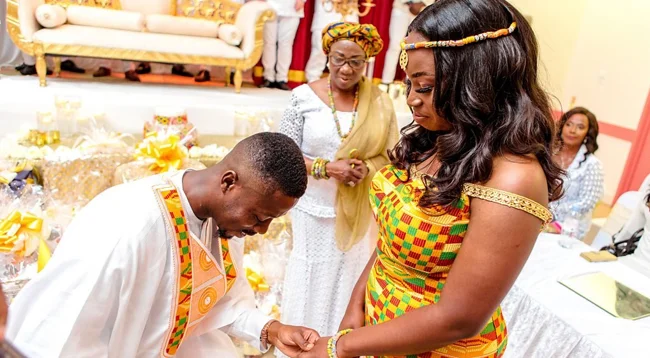
The first feast was held in the bride's house, where her father sacrificed a bull in honor of the important event.
The second feast was held in the groom's house.
And only after these celebrations did the newlyweds have to go through two unusual tests, without which the marriage was considered incomplete.
Testing the Bride 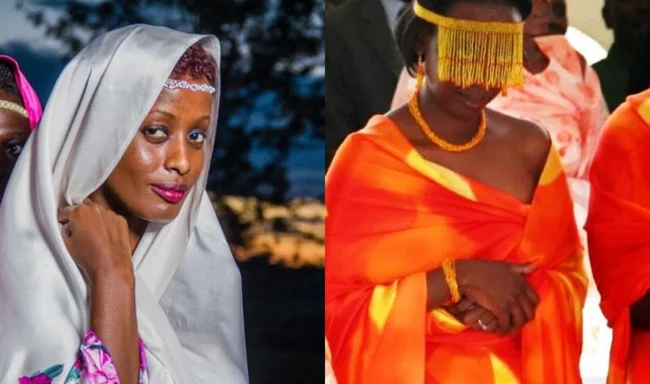
Virginity was considered a prerequisite for marriage among the Banyankole. Before the wedding, the girl was subjected to special tests by women from the groom's family, who had to confirm her purity.
In ancient times, failure of this test for a girl could result in death or expulsion from the community (which was equivalent to death in those days).
But today such harsh measures are a thing of the past: most often, failure of the test on the part of the bride only leads to the cancellation of the wedding and public censure of the bride's family in society. However, there are rare cases when the groom decides to continue the ceremony, although such situations are more the exception than the rule.
The Groom's Test: A Test from an Aunt 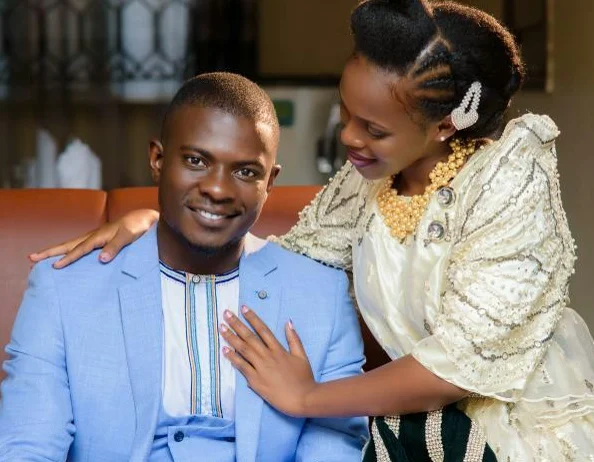
The groom also faced a test, and a much more unusual one.
Before the wedding, he was obliged to spend the night in a special hut with the bride's aunt. The aunt's task was to check the "masculine strength" of the future groom, whether everything worked and whether he knew how to please a woman.
Based on the results of this "check", the aunt gave her approval or could advise her niece to refuse the marriage. Moreover, the aunt shared with the girl secrets and advice on how best to behave on the first wedding night in order to immediately win over her husband and harmoniously build a relationship. 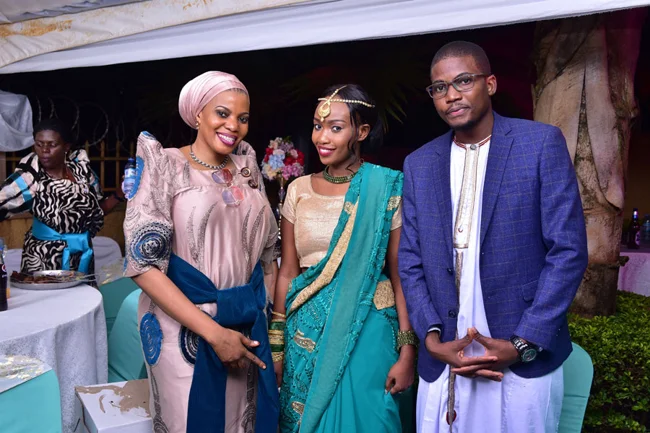
If for some reason the girl did not have an aunt on her mother's side - which was considered an extremely rare case for traditional African families - then the duties of preparing the bride for marriage and conducting all the necessary rituals were taken on by another close relative of the woman. Most often, this was the mother's older sister or even the older sister of the bride herself, if she was already married. Thus, tradition has always sought to preserve the participation of women of the clan, excluding the interference of outsiders.
For a modern person, this sounds like something incredible, but for the Banyankole tribe, this ritual has been considered the norm for centuries and even a kind of guarantee of a successful marriage.
















